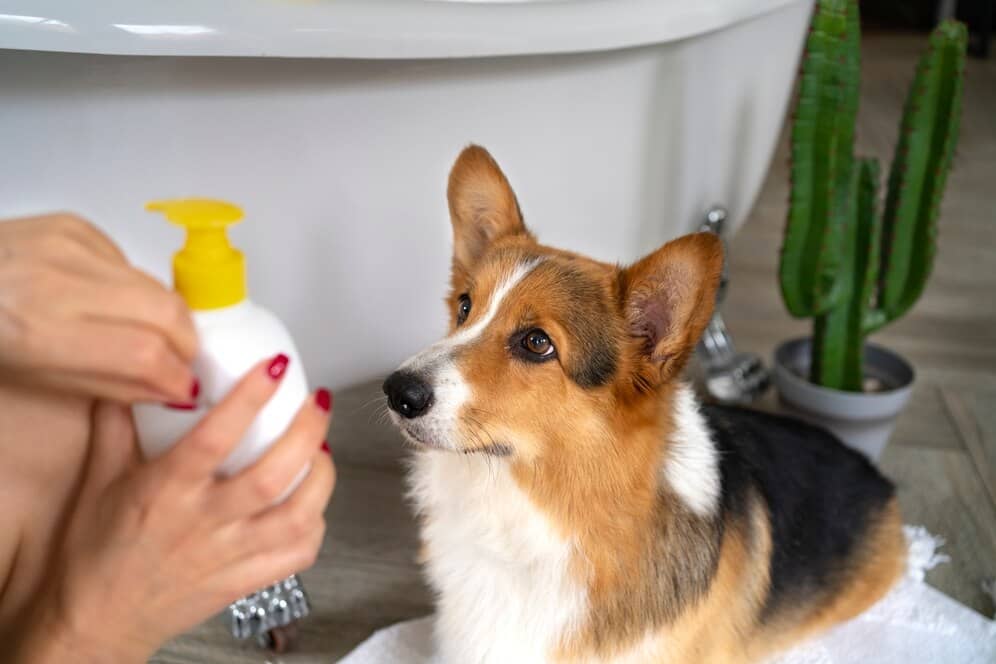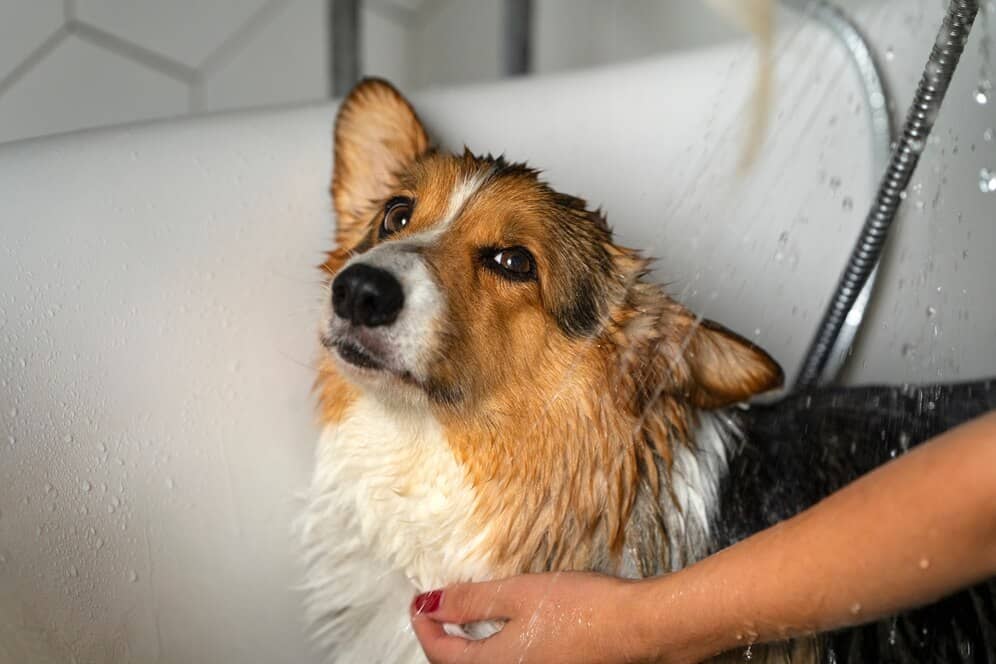
How to get rid of smelly dog ears
Let’s cut to the chase: getting rid of smelly dog ears is not just about wiping away dirt; it’s an act of love, an essential part of your dog’s health regime that too many pet owners overlook. I learned this the hard way when my dog, Charlie, started shaking his head incessantly, only for me to discover his ears had become a breeding ground for infection. It was a wake-up call, leading me down a rabbit hole of research, vet visits, and, eventually, a routine that kept those nasty smells and infections at bay. This article isn’t just another how-to guide; it’s a journey into the trenches of dog ear care, armed with personal anecdotes, expert insights, and a no-nonsense approach to tackling smelly dog ears head-on.
Learn how to get rid of smelly dog ears
- Use a cleaning solution with a drying agent.
- Clean your dog’s ears regularly to prevent infections.
- Avoid using cotton swabs to clean deep into the ear canal.
What You Need to Clean Your Dogs Ears

Before diving into the nitty-gritty, let’s talk essentials. The market is flooded with products promising miracles for your dog’s ears, but not all are created equal. Through trial and error, and numerous vet consultations, I’ve narrowed down the must-haves: a vet-recommended ear cleaning solution, cotton balls or gauze (never cotton swabs!), and treats to keep your pooch cooperative. Gloves are optional but recommended, especially if you’re squeamish about what you might find inside those ears.
Insider Tip: Always opt for ear cleaners specifically formulated for dogs; human products can cause more harm than good.
For a more in-depth look at the types of cleaners and tools that are safe for your dog, consider visiting /dog-collars/dog-ears-smell/.
How to Clean Your Dogs Ears
The process can be daunting, especially if your dog isn’t used to having their ears handled. Start by making them comfortable, using a calm voice and offering treats. Gently lift the ear flap and fill the ear canal with the cleaning solution. Here’s where things get messy: massage the base of the ear to loosen the debris, then let your dog shake their head. After the shake, use cotton balls or gauze to wipe away the loosened debris and excess solution. Repeat as necessary, but avoid over-cleaning, as it can lead to irritation.
For a step-by-step guide that takes the guesswork out of the process, including how to make your dog as comfortable as possible, check out /health-and-fitness/diy-dog-grooming-at-home-tips/.

How Often to Clean Your Dogs Ears
Frequency is key. Over-cleaning can cause irritation, while under-cleaning can lead to buildup and infections. The golden rule? Once a month for routine maintenance, but this can vary depending on your dog’s breed, activity level, and ear shape. Dogs with floppy ears or those that swim frequently may require more frequent cleanings. Always consult with your vet to establish a cleaning schedule that suits your dog’s specific needs.
Insider Tip: Keep an eye out for signs of discomfort or infection between cleanings, such as excessive scratching, head shaking, or a foul odor, as these may indicate a need for a vet visit.
What to Do If Your Dog Has an Ear Infection

If you suspect an ear infection, prompt veterinary care is crucial. Infections can rapidly escalate, causing significant discomfort and potential long-term damage. Symptoms include redness, swelling, discharge, and a strong odor. Never attempt to treat an infection with over-the-counter products or home remedies; a vet can prescribe the appropriate medication based on the type of infection, whether it’s bacterial, fungal, or due to ear mites.
For more on recognizing and addressing ear infections, visit /dog-collars/what-to-do-if-your-dog-is-foaming-at-the-mouth/.
Personal Experience: Dealing with an Ear Infection
When my dog, Max, started shaking his head excessively and pawing at his ear, I knew something was wrong. Remembering the importance of regular ear cleaning from an article I read, I decided to take a closer look. Upon inspection, I noticed redness and an unpleasant odor coming from his ear. Concerned, I scheduled a visit to the vet.
The Vet’s Diagnosis and Treatment
During the vet visit, Dr. Williams confirmed that Max had an ear infection. She explained that it was likely caused by trapped moisture from swimming. Dr. Williams prescribed medication to clear up the infection and advised me on how to properly clean Max’s ears moving forward.
Learning from the Experience
Going through this ordeal with Max made me realize the significance of regular ear checks and proper cleaning techniques. I now make it a point to inspect Max’s ears weekly and clean them gently using the vet-recommended solution. Taking preventive measures has not only improved Max’s ear health but also strengthened our bond through regular care routines.
What Not to Do When Cleaning Your Dogs Ears
When it comes to what not to do, the list is surprisingly long. Never use cotton swabs, as they can push debris further into the ear canal or damage the eardrum. Avoid water or vinegar, which can irritate the sensitive skin inside the ear. And perhaps most importantly, never clean too deeply; your goal is to clean the parts of the ear you can see, not to reach into the ear canal itself.
For a comprehensive list of dos and don’ts, including common myths about dog ear care, check out /dog-collars/care-and-maintenance/can-i-wash-dog-collars/.
The Bottom Line
Cleaning your dog’s ears may never become your favorite chore, but understanding its importance is the first step in preventing painful and expensive ear infections. Armed with the right tools, knowledge, and a pinch of patience, you can keep those smelly dog ears at bay and ensure your furry friend remains happy, healthy, and comfortable. Remember, a clean ear is a happy ear, and a happy ear makes for a happy dog (and owner).
In the end, it all boils down to routine, vigilance, and a bit of elbow grease. Don’t wait for the signs of an infection or discomfort to start your dog’s ear care routine. By then, you’re playing catch-up with a problem that could have been avoided. Start today, keep consistent, and your dog will thank you in their own wayprobably with a wet, sloppy kiss free of any smelly ear odors.
Frequently Asked Questions
Q: Who can help me with getting rid of my dog’s smelly ears?
A: A veterinarian is the best person to consult for smelly dog ears.
Q: What causes smelly ears in dogs?
A: Yeast or bacterial infections are common causes of smelly dog ears.
Q: How can I safely clean my dog’s smelly ears at home?
A: Use a vet-approved ear cleaning solution and gently wipe the ears.
Q: What if my dog’s smelly ears persist despite cleaning?
A: Consult a vet for a proper diagnosis and treatment plan.
Q: How often should I clean my dog’s ears to prevent odor?
A: Cleaning your dog’s ears once a week can help prevent odor buildup.
Q: What if my dog is resistant to having their ears cleaned?
A: Try using treats and positive reinforcement to make ear cleaning a positive experience for your dog.

